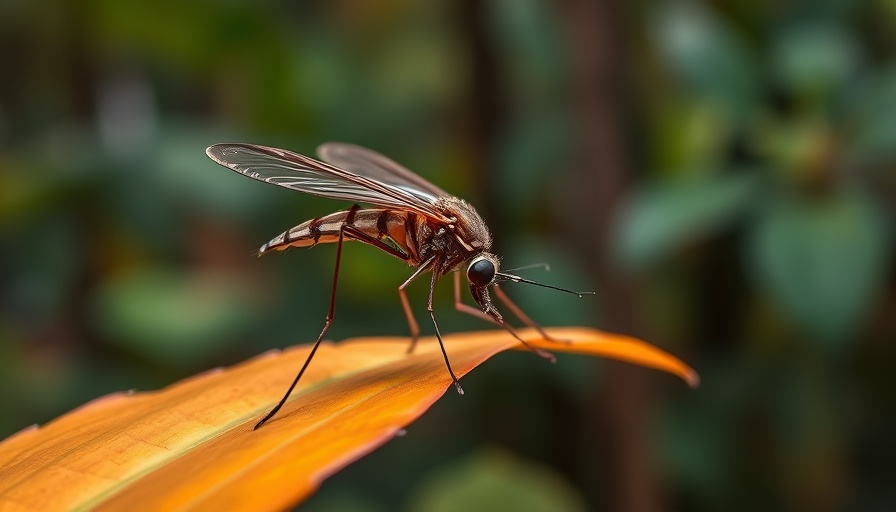
Malaria Resurfaces: A Potential Threat in NJ
In a surprising turn, health officials are investigating a case of malaria in a resident of Morris County, New Jersey. This could signal the first locally acquired malaria infection in decades, with the last instance reported in 1991. The unidentified individual has no recent travel history, raising concerns among health experts about the possibility of homegrown cases of this tropical disease.
Malaria, a mosquito-borne illness caused by parasites, is typically associated with regions in Africa, South America, and Asia. However, health authorities emphasize that although the Anopheles mosquito, which transmits malaria, is found in New Jersey, the chances of contracting the disease locally are low. Approximately 100 travel-associated malaria cases are documented yearly in the state, but precautions remain vital.
Understanding the Disease and Its Symptoms
Health officials urge residents to be aware of malaria's symptoms, which include fever, chills, fatigue, and muscle aches. Often, symptoms appear within 7 to 30 days post-exposure. Without prompt diagnosis and treatment, malaria can become life-threatening. Fortunately, effective treatments exist through prescription antimalarial medications.
Preventing Mosquito Bites: Staying Safe This Season
As summer marches on, health authorities remind the public of ways to reduce mosquito bites. Using insect repellent, wearing long sleeves, and removing stagnant water can significantly decrease risks. Acting NJ Health Commissioner, Jeff Brown, emphasizes the importance of prevention, especially considering the rise in cases like West Nile virus, which is currently the most prevalent mosquito-borne infection in the U.S.
Future Insights: Are More Homegrown Cases Possible?
The emergence of this case may lead to increased vigilance regarding mosquito-borne diseases in the state. Experts recommend continuing education on mosquito control and early recognition of malaria symptoms, as ongoing monitoring is crucial in preventing further cases.
In summary, while the likelihood of locally-acquired malaria in New Jersey remains low, this unexpected case serves as a vital reminder of the potential threats posed by mosquito-borne diseases. Residents are encouraged to remain informed and prepared while enjoying the summer months.
 Add Row
Add Row  Add
Add 




Write A Comment